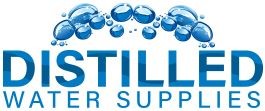Should I drink distilled water?
There is much debate about whether distilled water is safe or beneficial for human consumption. The truth is, distilled water is as pure as you can find, certainly more so than potable water that comes out of the tap as any heavy metals, pesticides and hormones have been removed. However, care must be taken not to store bottles of distilled water for too long after they have been first opened (over 3-4 weeks) as without the chlorine that is added to tap water, distilled water may become contaminated with bacteria and other harmful organisms over time.
In recent years there has been a lot of discussion whether, despite its bland taste, drinking distilled water in place of potable water is actually good for health. The arguments for drinking distilled water are that it is beneficial to health since not only is it totally pure all contaminants but it also will help to clean the body of excess bacteria and harmful toxins. The detractors argue that drinking distilled water causes essential materials that humans need to preserve their allergy barrier is driven out of the body through 'unnaturally' produced water.
What to consider when buying distilled water for drinking?
The three main points when choosing distilled drinking water online are:
1. Is it bottled in food-grade plastic bottles that are free from BPA? Bisphenol A (BPA) is an additive found in some plastics that can leak into the water and mimic the effect of hormones in the human body. None of our bottles contain BPA and they are all made from brand new food-grade HDPE plastic (polythene)
2. Is it 'industrial grade' and made in a factory that also manufactures industrial chemicals? Some suppliers of Distilled Water are simply chemical retailers that offer distilled water for forklift batteries etc. This is perfectly fine for 'industrial' applications, however, it does create additional risks if the water is to be consumed. We only produce pure distilled water at our facility, so there is zero chance of contamination with chemicals.
3. Is it truly steam distilled water? There are several techniques for producing pure water - deionisation, filtering, reverse osmosis, distillation. The cheaper methods of purifying water produce water that is adequate for applications such as window cleaning and fish tanks, but only water distillation boils the water at 100°C to kill off bacteria as well as leaving heavy metals such as cadmium, lead and arsenic behind in the boiling chamber.
